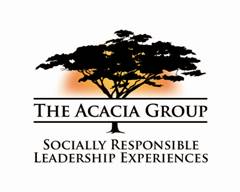Focusing on The Why? Not the What? …of CSR
Apr 13, 2010 11:20 AM ET
The Acacia Group - Socially Responsible Leadership
We’ve all done it….asked the question at a social event…”What do you do?”- But how often do we ask “Why do you do that?”
In the rush to get on the social responsibility bandwagon, corporations may be happy to tout the –what they do answer without much real understanding of the why. Whether on an individual or corporate level this “why” - speaks to a simple values clarification model I learned years ago. In order for something to be considered a value it has to be; chosen freely, from alternatives, prized and honored, and finally – acted upon. Often, someone who can answer the “why” comes from a deep based value system. If a company’s response to the “why” question cannot stretch beyond –“because our customers expect it” or the more generic “because it is the right thing to do” – chances are they have not adopted the value of CSR as a strategic priority. In a great discussion paper on the value of International Corporate Volunteer Programs FSG – Social Impact Advisors suggested that companies that “get it” will ask… What strategic benefit is the company accruing and how effective have employees been at adding value to society? and as such, will focus on counting both the outputs and outcomes of their efforts. The outputs are to be used for the CSR report, brand marketing and other public relations processes. They can count the number of hours volunteered, the number of meals served at a food program or the number of dollars raised for a cause. The outcomes are more challenging – but can be focused on enhanced employee morale, engagement, recruitment and new skill acquisition or, even as The Acacia Group proposes, new leadership skills. The FSG paper provides a model that distinguishes between the generic traditional volunteer efforts, programs that are strategically aligned to assist development in the value chain or to be high-impact skills based service that leverage corporate resources. The point here is that the corporation needs to consider in advance what they wish to achieve for themselves and how they will contribute to a better society. This requires strategic thinking and longer term planning and measurement that could occur over years of engagement. The buzz of whether CSR is a PR shell game and has a short life or is a true strategic business imperative- can be addressed by these value based decisions. If a company does not choose their CSR activities wisely, does not contemplate the value, does not allocate the resources to support the activity, and does not act upon them consistently or over time –the initiative will fail. The volunteers will feel their efforts are shallow, the executive will be tainted by the failure and will be less likely to sponsor the next CSR project and the NGO will be wary about the next “great idea”. Frankly – those organizations who want to just “test the waters” of CSR and only skim the surface without understanding their “why” are better off staying out of the water. AG5975
